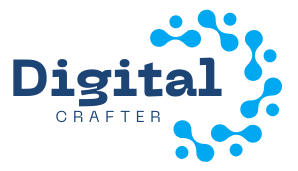In the competitive world of search engine optimization (SEO), getting your web pages indexed quickly by major search engines such as Google can make a significant difference in visibility, traffic, and overall website performance. While it’s essential to avoid manipulative or spammy tactics that could lead to penalties or deindexation, there are many safe and effective strategies you can use to accelerate the indexing of new pages. This guide will introduce legitimate methods for safe, rapid URL indexing that comply with search engine guidelines, and ensure the longevity of your SEO efforts.
Why Fast URL Indexing Matters
Indexing is the process where search engines discover new URLs and add them to their searchable database. Until this process is complete, a page will not appear in the search results. This is especially critical for:
- New websites trying to establish a presence
- Time-sensitive content such as news articles or product launches
- Updated or restructured websites needing their changes reflected quickly
Delays in indexing mean lost opportunities, less organic traffic, and a slower feedback loop for SEO improvements. Therefore, the ability to safely nudge crawlers to index your new or updated pages quickly is invaluable.
Understanding the Indexing Process
Before exploring strategies, it’s important to understand the simplified process web crawlers follow:
- Discover new links or URLs through sitemaps, links from other web pages, or manual submissions
- Crawl the page to assess its content, structure, and relevance
- Index the page based on its perceived value and compliance with guidelines
Interfering with this process through manipulative techniques (i.e., fake backlinks, automated tools) is risky. However, ethical SEO practices can guide crawlers more effectively, improving indexing times while staying within guidelines.
Safe and Effective Ways to Nudge Crawlers
1. Use the Google Search Console (GSC) “URL Inspection Tool”
This is one of the most direct and safe ways to request indexing:
- Open GSC and navigate to the property of your site
- Paste the URL of the new or updated page into the inspection tool
- If not indexed, click “Request Indexing”
This sends a request to Google’s crawlers, often resulting in indexing within hours or days. While not guaranteed, it’s an authorized and guideline-compliant method.
2. Submit and Maintain Updated XML Sitemaps
Sitemaps tell search engines what to crawl. Ensure you:
- Create an up-to-date, dynamic XML sitemap
- Include new URLs as soon as they go live
- Submit your sitemap to Google Search Console and Bing Webmaster Tools
Make sure your sitemap is referenced in your robots.txt file to help bots locate it during their crawling operations.
3. Improve Internal Linking
When you publish a new page, ensure it is linked from other indexed pages on your site. Crawlers frequently revisit high-traffic or high-authority pages, so linking from them accelerates the discovery of the new URL. Consider:
- Adding the new page to relevant category or blog index pages
- Including contextual links from existing content
Tip: Adding the new URL to your homepage or footer (if appropriate) guarantees rapid exposure to bots.
4. Share on Social Media and Platforms Where Crawlers Operate
While social signals are not a direct ranking factor, links shared on platforms like Twitter, LinkedIn, or Reddit can get picked up by crawlers. Public sharing may help discover your content faster—especially when shared on high-authority domains.
Quora, Medium (with canonical links), and other community-driven sites can serve a similar function. Remember, though, to avoid spam and always provide value.

5. Implement Schema Markup
Structured data helps crawlers understand the context of your page, which can contribute to faster indexing and rich result eligibility in search listings. Common markup includes:
Article,BlogPostingfor content-based sitesProductfor e-commerce listingsEventfor time-bound happenings
Add JSON-LD format scripts in your page header to ensure readability and accuracy.
6. Boost Crawl Budget with Speed and Technical SEO
Google allocates a crawl budget to your site based on perceived value and server performance. Improve these aspects to make your site worth crawling more frequently:
- Minimize page load times
- Use mobile-first design
- Resolve crawl errors in GSC
- Avoid duplicate content or orphaned pages
Websites that are fast, secure, and reliable attract crawlers more often, leading to faster indexing of new URLs.
7. IndexNow Protocol (Optional for Bing and Yandex)
IndexNow is a newer initiative supported by Bing and other search engines. It instantly notifies search engines when you publish or update content. To use it:
- Generate an API key
- Host the key file in your root directory
- Ping the engine with your updated or new URLs via an API call
While Google has not widely adopted IndexNow, it’s a recommended practice for multi-engine SEO coverage.
8. Consolidate and Prune Low-Quality Pages
Too many low-value or outdated pages can dilute crawl budget. Conduct regular audits and consider consolidating pages or using noindex meta tags where appropriate. A leaner, more focused site architecture ensures bots spend time on what matters.

Tactics to Avoid: Indexing Pitfalls That Invite Penalties
Not every method for fast indexing aligns with best practices. Avoid these risky behaviors:
- Buying backlinks solely for indexing speed
- Submitting URLs excessively via tools or APIs in short spans
- Using link farms or automated traffic bots to simulate activity
These can lead to search engine distrust, algorithmic penalties, or even manual actions that impact your entire domain. Patience with ethical methods ensures your site remains in good standing long-term.
Measuring Your Indexing Success
Use both qualitative and quantitative methods to track indexing performance:
- Monitor Index Coverage reports in Google Search Console
- Use the site:yourdomain.com operator in Google to confirm which pages are indexed
- Run regular crawls using tools like Screaming Frog to check crawlability and internal linking health
Ideally, you should see your new pages indexed within a few days of following the above practices. If indexing delays continue, it may indicate deeper site-level issues, such as thin content, poor authority, or technical errors.
Conclusion: Ethical Nudging for Long-Term Success
Speeding up the indexing process does not require risky hacks or black hat techniques. By leveraging the tools and protocols that search engines provide, along with building a technically sound and valuable website, you can achieve reliable, fast indexing in a sustainable manner.
Make it a habit to:
- Submit updated sitemaps regularly
- Request indexing via official tools sparingly but strategically
- Strengthen internal linking and clean up weak pages
- Promote content naturally through public platforms
With consistency and White Hat SEO practices, you’ll not only speed up your indexing but also build a stronger foundation for long-term rankings and organic visibility.

